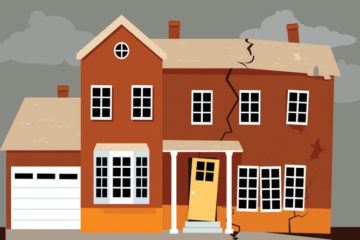
Everyone is actively monitoring the news for the latest updates on the Coronavirus (COVID-19). We are all hopefully following the guidelines from the Centers for Disease Control and Prevention (CDC), the World Health Organization (WHO), and other local and national health organizations. Regardless, it goes without saying that members, homeowners, board members, community association managers, management company executives, and business partners have many questions about prevention, containment, and how to move forward during this crisis.
First and foremost, please listen to the health care professionals and heed their advice. The CDC and other qualified health officials should be your primary source of information and guidance regarding the Coronavirus threat. HOA affairs, while important, are secondary to protecting the health and wellbeing of our communities. However, while the CDC and other healthcare professionals can guide us concerning the medical risks, we understand that business must be conducted and the day-to-day affairs of running a community association must still be managed.
How to Hold Meetings, if Necessary
In this new era of “social distancing” the traditional method of holding in-person board and membership meetings needs to be reconsidered. For now, we should all consider postponing any non-essential meetings for at least thirty (30) days and shelter in place as much as possible. This is the prevailing opinion as of the time of writing this article. However, information is changing at a rapid rate. So much so that this article may not even still be relevant by the time you read it. Nevertheless, most association issues are not so pressing as to warrant transmitting or being infected by the Coronavirus at an association meeting. Postponing meetings as much as possible to allow for adequate social distancing and self-quarantine at the outset of this pandemic is almost certainly the best approach.
With that said, there is an alternative built into the California Civil Code which allows for video or teleconference meetings to be held. Civil Code § 4090(b) sets forth the following requirements for an association to hold a virtual board meeting:
As always, the association must provide the notice and agenda for the board meeting in advance. Unless the meeting will be held solely in executive session, the notice must identify at least one physical location at which the association’s members can attend the meeting. It is important to note that the law requires that at least one director, or a person designated by the board, must actually be present at that physical location.
Just like any other meeting, a quorum of the board must be present. In the case of a teleconference board meeting, this occurs when a sufficient number of directors to establish a quorum “are connected by electronic means, through audio or video, or both.” In other words, the meeting can be conducted via conference call. Assuming proper notice was given and quorum established, the meeting may proceed so long as all of the participants and attendees, including the directors and the members, are able to hear one another. There are any number of devices which provide the capability for both audio and video teleconferencing, but this can be accomplished as simply as using a telephone on speaker mode, just so long as everyone can hear everyone else.
If an open board meeting cannot be postponed for whatever reason, please keep in mind that there may be federal, state, and local government restrictions in place regarding group gatherings which may be implicated by having members congregate in a single location around a speakerphone or otherwise. Community associations should check with their local health officials to determine if any such restrictions are in place before noticing a meeting.
What Else Boards and Management Professionals Can Do
Community associations control and are responsible for their common areas. With that in mind, boards may want to consider taking action to limit any potential claims of negligence or premises liability which might arise in this situation. With that in mind, it would be a good idea to implement a schedule for extensive cleaning and disinfecting common areas and common area surfaces, and to properly document the same. This could include the installation of hand sanitizer dispensers or disinfecting wipes in the common areas for owners and guests to use. Additionally, boards should explore the possibility of closing certain common area amenities, such as gyms, clubhouses, and pools. Boards should discuss these options with their legal counsel before taking action.
In the event that common areas are closed in response to the COVID-19 pandemic, notices should be posted which explain the board’s reasoning, and provide an estimated time for when the areas are anticipated to reopen. Any such notices should direct residents and guests to seek additional information from the relevant governmental agencies.
In short, the health and safety of ourselves, our neighbors, family, residents, staff, and management should be our highest priority at this time, and certain reasonable changes may need to be implemented in an effort to contain and mitigate the possible transmission of the Coronavirus. If we can all continue to use sound discretion and make sensible efforts to adhere, as reasonably as possible, to the laws regulating the conduct of associations while following the recommended and mandated health guidelines, we stand the greatest chance of minimizing the impact of this pandemic.



